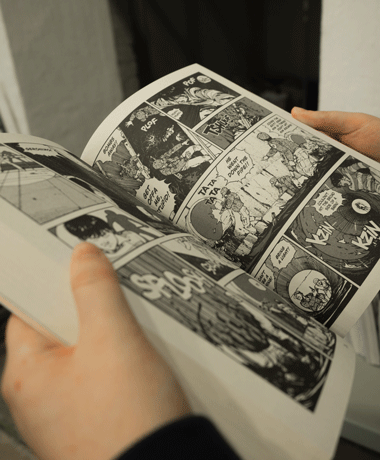We are all storytellers.
Here at All Good Tales, we understand the importance of how you tell your story and how it can impact your audience. Storytelling itself is a craft.
Find out how you can improve your storytelling skills with a consultation.
We’ve put together our top five TED Talks to help you to improve your storytelling.
“The Danger of a Single Story” – Chimamanda Adichie
“When we reject the single story, when we realise that there is never a single story about any place, we regain a kind of paradise.”
Chimamanda Adichie started writing when she was just seven years old. The turning point of storytelling career happened when she began to write about things that she recognised from her own life. Here she found her own authentic voice. She says “it saved me from having a single story of what books are.”
Adichie stresses the importance of stories throughout the talk. “Stories have been used to dispossess and malign. But stories have also been used to empower and to humanize. Stories can break the dignity of the people but they can also repair that broken dignity.”
She draws on her own experience involving her culture to explain why having a single perception of people, places or an idea in a story can be detrimental to the process of storytelling.
“What Great Storytellers Know” – Matt Chan, TEDxSeattle
“I would say if you’re trying to capture an audience, start with what they know, what your audience knows. But what if you don’t know your audience?”
Matt Chan has shared stories through the medium of television for over 40 years. He pinpoints having a strong awareness and knowledge of your audience as to why his non-fiction television programmes have worked for so long. This is an aspect often overlooked by storytellers.
You must “capture your audience first. Engaging them at a deeper level right off the top.”
Chan suggests falling back on life experiences. Share familiar stories as a backup if you do not know your audience, stories that everyone has been through. Once hooked in this way, you can take your audience wherever you want, “with twists, turns and cliffhangers”.
“The mystery of storytelling” – Julian Friedmann, TEDxEaling
“Why is it (storytelling) so difficult, and the answer is partly because you’ve got to remember that the story is much more about the audience than it is about the characters or the plot, and it’s much more about the audience, than it is about the storyteller.”
Julian Friedmann is an experienced agent, having undertaken many different roles in his time and working with a variety of storytellers over 40 years. He describes storytelling as “mysterious”. His “Holy Trinity” of storytelling involves the writer, the character and the audience. Friedmann emphasizes relationships in the storytelling industry. He emphasizes that “your primary relationship has to be with your audience, not your characters”.
In this talk, Friedmann attempts to explain that it is essential to understand how audiences use stories. But also why we need stories in order to make a story work. He addresses many aspects in his talks, including characters, dialogue and rejection in the storytelling industry.
“One Word Storyteller” – Strother Gaines, TEDxMidAtlantic
“By moving from a passive observer to an active participant, you’ll take ownership of that story, and it elevates both of our experiences.”
In an interesting talk, both verbally and visually, Strother Gaines describes the power of engaging storytelling and the effects that it can have on an audience.
He draws on his memory at a public speaking conference, playing the game “one word storyteller” with hundreds of other delegates. The story goes on to prove that engaging in the storytelling process, if it is with one word or one thousand words, you can be immersed and transformed like never before. Storytelling becomes a part of you.
Gaines focuses on his three main bullet points of any story. They are “critic, creator and connection”. “You can increase your retention, deepen your connection and broaden your impact by creating something. Anything new.”
One aspect of his TEDx talk that backs up his points made is the audience participation towards the end of the talk.
“The Science of Storytelling” – Will Storr, TedxManchester
“Story is what brain does. Story emerges from human brains as natural as breath emerges from human lips.”
Will Storr is a journalist and a novelist, but overall, he is storyteller. In this TEDx Talk, takes a more technical approach to the process of storytelling than previous talks. However, it is just are interesting and informative.
He teaches writers how to use science to make themselves better storytellers. Will interrogates the human brain in order to develop our storytelling techniques. He shares six in-depth scientific principles, directly relating to storytelling.
While his talk helps us in improving our story and sharing your message, it also helps to understand ourselves as storytellers in a new way.
